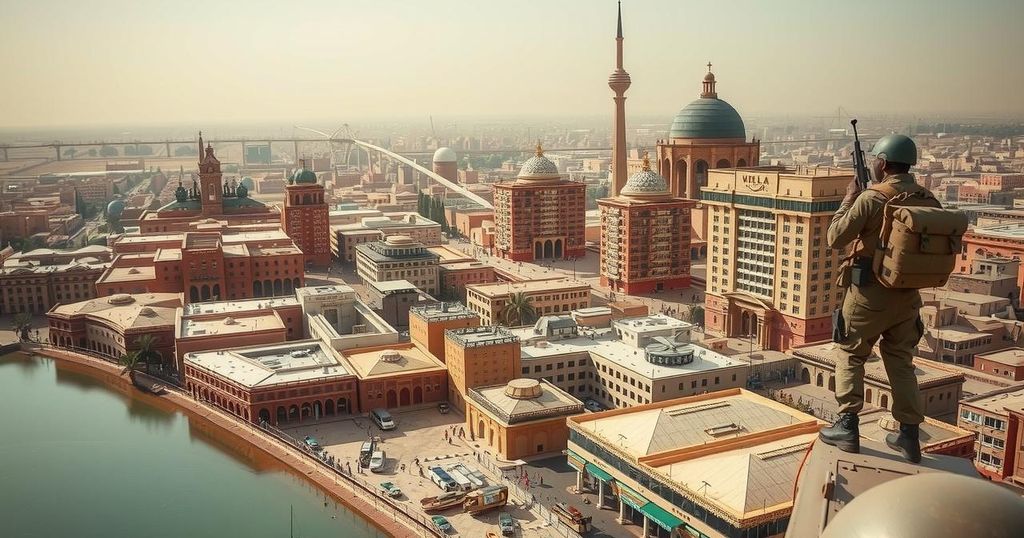Strategic Importance of Wad Madani’s Recapture by the Sudanese Army

Wad Madani, a vital agricultural city in Sudan, has been recaptured by the Sudanese Armed Forces from the Rapid Support Forces (RSF). This strategic victory is expected to cut off RSF supply routes and enhance SAF’s operational capabilities, while also potentially alleviating some humanitarian crises. Despite this, concerns about ongoing human rights issues remain, as the conflict continues to evolve.
The recent recapture of Wad Madani by the Sudanese Armed Forces (SAF) has significant implications for the ongoing conflict in Sudan. Situated approximately 200 kilometers southeast of Khartoum, Wad Madani serves as a crucial agricultural and trading hub, and its control provides strategic advantages in accessing various parts of the country. The SAF’s statement following the operation indicated their intent to eliminate remaining RSF pockets in the city, marking a turning point in the conflict since the RSF’s capture of the city in December 2023.
The city’s strategic importance lies in its position as a crossroads for supply highways linking several states, including Sennar, Blue Nile, and White Nile. According to Hiba Morgan of Al Jazeera, the RSF’s control over Wad Madani initially allowed their movement across key regions. Hamid Khalafallah, a Sudan policy analyst, emphasized that controlling this city grants the SAF enhanced logistical flexibility for operations into and out of Khartoum. In addition, the recapture brings hope for improved humanitarian conditions, as the region is known for its fertile agricultural lands, which have faced destruction and neglect under RSF oversight.
Despite this victory, the RSF leader, Mohamed Hamdan Dagalo, maintained that the conflict was ongoing, emphasizing the RSF’s determination to regain losses. Although the SAF has gained momentum by recapturing territories in Gezira state, the RSF continues to hold sway over significant portions of Sudan, particularly in the western Darfur region.
The effect of this military advance is twofold; it not only offers a morale boost to the SAF, evidenced by local celebrations but also raises concerns among civilian populations regarding the potential for repression against pro-democracy activists. Observers are wary of possible human rights violations amid the SAF’s efforts to consolidate control.
The recapture of Wad Madani enhances the SAF’s operational capabilities and may alleviate some of the hunger crisis in Sudan, yet it also requires close monitoring of civil rights conditions as the situation evolves.
The conflict in Sudan has escalated significantly since April 2023, primarily between the Sudanese Armed Forces and the paramilitary Rapid Support Forces (RSF). The RSF’s control over significant territories has led to humanitarian crises, with over 12 million people displaced. Wad Madani, a central city in the Gezira state, was under RSF control until the recent SAF offensive, which aims to regain strategic points to disrupt RSF movements and create opportunities for humanitarian aid.
The recapture of Wad Madani represents a critical strategic gain for the SAF amid an ongoing brutal conflict with the RSF. This military success highlights the significance of geographic control in warfare, not only for military operations but also for the potential recovery of humanitarian conditions. However, the situation remains precarious, especially concerning civil rights, as the SAF consolidates its authority.
Original Source: www.aljazeera.com








